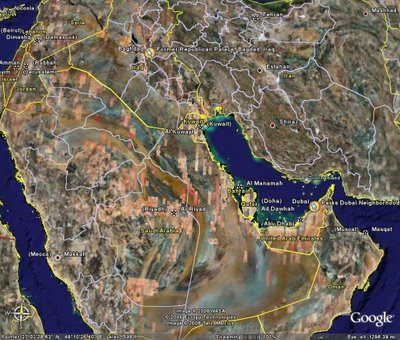Matthew 25:14-3022 "The servant who had received the two bags of silver came forward and said, `Master, you gave me two bags of silver to invest, and I have earned two more.'
23 "The master said, `Well done, my good and faithful servant. You have been faithful in handling this small amount, so now I will give you many more responsibilities. Let's celebrate together!'
24 "Then the servant with the one bag of silver came and said, `Master, I knew you were a harsh man, harvesting crops you didn't plant and gathering crops you didn't cultivate.25 I was afraid I would lose your money, so I hid it in the earth. Look, here is your money back.'
26 "But the master replied, `You wicked and lazy servant! If you knew I harvested crops I didn't plant and gathered crops I didn't cultivate,27 why didn't you deposit my money in the bank? At least I could have gotten some interest on it.'
I recently attended a Bible study with quite a few new or non-Christians there and this was the passage selected. I was frustrated with the leader thinking the passage too hard for the crowd attending. Later I realized that my frustration may have had more to do with my own discomfort with the passage and my inability to connect it to the Gospel.
So I've been pondering this passage asking, "how does this relate to the Gospel?
A superficial interpretation seems to lead to a simple lesson... Put to good use all the advantages or blessings God has given you and you will be rewarded when the final judgement comes.
But that explanation seems inadequate.
First a few observations. The NLT says that the Master "gave them money to invest for him". The NIV translates it "entrusted his wealth to them". Both indicate that the Master expected the servants to invest or handle his wealth for him or on his behalf. He also expects to return and collect. He's not giving away his wealth. Also, based on their responses when he returns, all three seem to know that he was to return and "settle accounts" with them.
My second observation is that all three work while the Master is away. But the first two work for the Master's purposes. The third seems to bury the money and then go about his own business. This more implied by the text rather than explicitly stated. The Master is away a long time, surely the third servant worked during that time. He just worked
on his own behalf.
Thirdly, the third servant doesn't seem to understand the character and goals of the Master nor does he even act appropriately based on his mischaracterization of him.
These three observations, taken together, lead me to think that it's not so much if you make interest or
if you use what the Master has given you but
for whom you work while the Master is away. Are you working for yourself or the Master?
This is how the passage connects to the Gospel. What God has done for us through the cross of Christ demands a response. Believing in Jesus and setting him as the Lord of our lives is the appropriate response. Mere acknowledgement of Jesus is not enough. Even the third servant did that. He called him Master. But he didn't live for the Master.
So it's not enough to put the advantages and blessings of God to some kind of good use. He calls us to live for him.
I feel warned by this passage. Am I working for the furthering of his purposes before he returns? Or am I working for my own benefit? Do I know who the Master really is and what he wants to see happen while he's away?
Read the passage. The outcome is either extreme joy and benefit or extreme regret and crushing loss.









